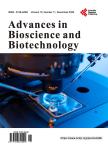The Akt Pathway Inhibitor Degeulin Prevents Staphylococcal Enterotoxin B Induced Splenocyte Proliferation and Inflammation
The Akt Pathway Inhibitor Degeulin Prevents Staphylococcal Enterotoxin B Induced Splenocyte Proliferation and Inflammation作者机构:Department of Biomedical Sciences Defence Science and Technology Laboratory Porton Down Wiltshire UK Department of Anaesthesia University of Cambridge Cambridge UK Department of Medicine Washington University St. Louis Missouri USA
出 版 物:《Advances in Bioscience and Biotechnology》 (生命科学与技术进展(英文))
年 卷 期:2017年第8卷第1期
页 面:1-12页
学科分类:1002[医学-临床医学] 100214[医学-肿瘤学] 10[医学]
主 题:Staphylococcal Enterotoxin B Deguelin Therapy Inflammation Biological Weapon
摘 要:Staphylococcal Enterotoxin B (SEB) is considered a potential biological weapon. It is toxic by both inhalation and ingestion. Effects of ingestion include fever, vomiting and diarrhoea, while inhalation may additionally result in chest pain, dyspnoea, pulmonary oedema and respiratory failure. Severe exposure may be fatal and treatment relies on symptomatic support. At a cellular level, SEB up-regulates T-cell proliferation leading to a pathological inflammatory response. Deguelin, a rotenoid isolated from the African plant Mundulea sericea (Leguminosae), has been shown to reduce cellular proliferation by inhibiting the phosphoinositide 3-kinase/Akt (PI3K/Akt) signalling pathway. Using isolated murine splenocytes, we have demonstrated that treatment with deguelin reduces SEB inducing T cell proliferation by 60%. Deguelin treatment also decreased IL-2 and CCL2 secretion by splenocytes exposed to SEB. We demonstrate that targeting cellular proliferation can significantly reduce inflammation after SEB exposure and suggest that anti-proliferatives may have a role as potential generic medical counter measures if superantigens are used as biological weapons.



